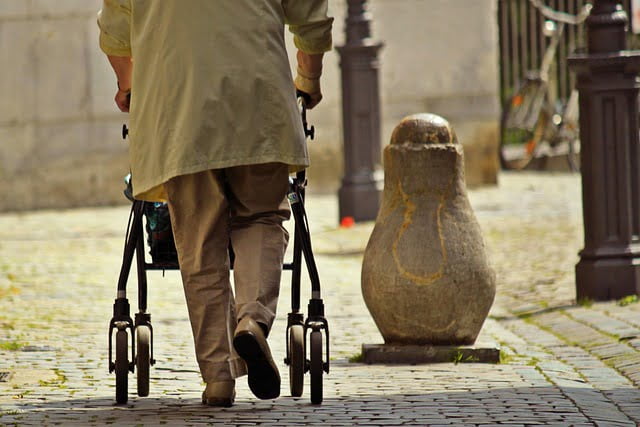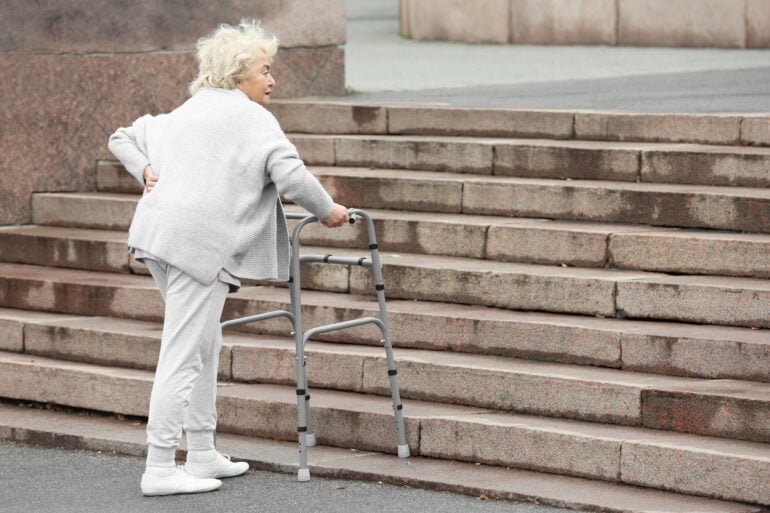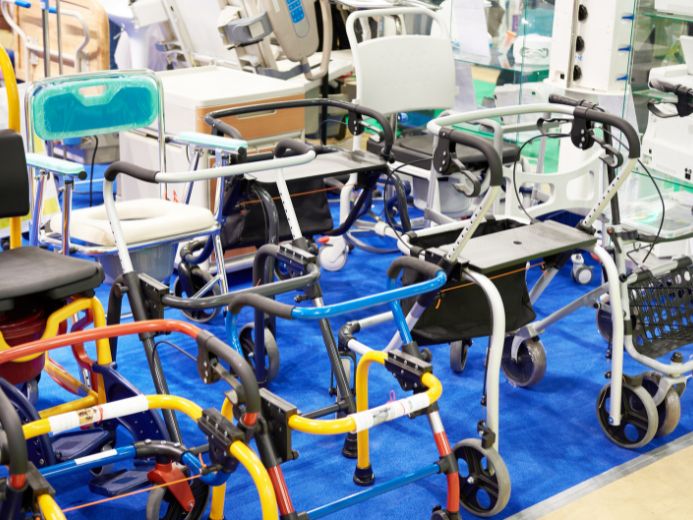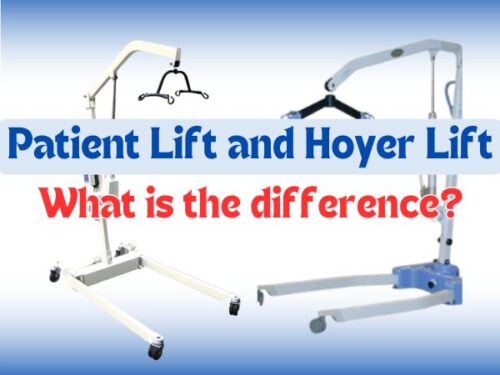Due to old age, traumatic injuries, and muscle weakness, among other reasons, many people are unable to move normally thus becoming dependent on constantly needed help. If mobility is restricted for longer, the risk of muscular breakdown also increases resulting in complete loss of mobility. Therefore, it is essential for people to keep moving on a daily basis with the help of mobility aids. One such aid includes the use of walkers which are available in different types and features. Here is a compilation of some of the frequently used walkers along with the characteristics to look for in them while purchasing.

Statistics Regarding Mobility Disorders in the US
The National Institute of Health (NIH) has reported that 19 million people in the United States are presently affected with some kind of mobility-associated disorder. Among these, according to the Centers for Disease Control and Prevention (CDC), nearly 16 million individuals have access to mobility aid including walkers, canes, crutches, etc. These mobility-aiding devices thus have a significant role in people’s lives as these can be the source of achieving physical independence for many.
What is a Walker?
A mobility walker, walking frame, or as it is called i.e. a rollator, is a mobility aid that provides assistance and support to a person while walking. These four-wheeled walkers are designed in a way as to stabilize patients who have mild to severe mobility issues in terms of balancing their weight while walking.
Who Needs a Walker?
The following individuals need the assistance of a walking aid:
● For people who have recently gone through a foot or leg surgery such as joint replacement procedures might need a walker to start standing and moving again.
● In cases where a leg fracture has crippled an individual, these mobility walkers are also helpful.
● Patients with disease conditions such as arthritis or osteoporosis also require walkers for mobility.
● Doctors also recommend patients with leg instability due to weakness use walkers with the aim of reducing pressure on the lower limbs.
Types and Characteristic Features of Walkers
For the selection of the right type of walker, one must take suggestions from a healthcare provider or physiotherapist. Here is a summary of the basic types of walkers used today:
● Standard Walker
A standard or pick-up walker does not have wheels. Rather it is equipped with four rubber-tipped legs. The instrument is highly stable. It has a high weight and can be difficult to lift.
● Knee Walkers
Knee walkers have a knee platform to support the patient while walking or sitting. It has four wheels and has a handle. Usually, knee walkers are helpful for covering shorter distances i.e. in case of foot or ankle injuries, etc.
● Two-Wheel Walker
Two-wheel walkers are affixed with two wheels at the front legs. The instrument helps the patient to stand straight as a result of which posture is improved. Moreover, the chances of falling are also minimized with this device.
● Three-Wheel Walker
Three-wheeled walkers are lighter in weight and are thus easier to move and handle. These are especially ideal for use in tight spaces.
● Four-Wheel Walker
For people who are unable to stand still or have severe balance issues, four-wheeled walkers are the best. These walkers also have a seat so that the patient can sit down for a while when tired.
Choosing the Right Mobility Walker
Choosing the right walker for a patient can be overwhelming due to the vast variety of these present in the US market. Here are some of the tips which can be helpful while choosing the best product:
● A good walker should be equipped with a strong and non-slip grip. These grips are made up of plastic or foam. It should also be easy to grab and secure.
● A walker should be well-fitted in a way that the stress on the shoulders and back is minimized.
● A foldable walker should be preferred if a patient tends to move frequently.
● Hand brakes should also be present in the walker in order to enhance the control.
● Walkers should be adjustable in a way that a pouch or a tray can also be affixed to them.
● For a patient who will be using the walker for a long time, a product with a seat should be given preference.
Walker: Brands and Specifications
Among multiple brands which manufacture and market walkers, the following is considered one of the best items:
● U-Step II Walking Stabilizer
U-Step II walking stabilizer is a walking aid particularly suitable for people suffering from neurological disorders such as Parkinson’s disease. Moreover, the instrument is also suitable for patients with postural instabilities including stroke, multiple sclerosis, ataxia, multiple system atrophy, as well as progressive supranuclear palsy. Its reverse braking system gives the control to the user’s hand. Speed is fully adjustable and the device is also suitable for moving on uneven surfaces.

The walkers mentioned in this article, along with many other medical supplies, can be purchased from Health Supply 770, a reliable name when it comes to medical products. They have a 30-day money-back guarantee and provide your products to you in the shortest possible time. Click the link at the end of the article to check the wide range of mobility aids on the website.
Conclusion
Owing to the increasing number of patients with walking disabilities, mobility aid has become essential for a huge chunk of the population. Among the options, walkers or rollators are given preference as they can help the patient by distributing the weight thus providing ease of moving.
Different kinds of walkers are available in the market which have suitability for different diseases. One must choose the best instrument based on the patient’s needs. Purchasing medical devices from reliable vendors like Health Supply 770 ensures the provision of quality products along with satisfactory services.
Click to Order Walkers from Health Supply 770

PhD Scholar (Pharmaceutics), MPhil (Pharmaceutics), Pharm D, B. Sc.
Uzma Zafar is a dedicated and highly motivated pharmaceutical professional currently pursuing her PhD in Pharmaceutics at the Punjab University College of Pharmacy, University of the Punjab. With a comprehensive academic and research background, Uzma has consistently excelled in her studies, securing first division throughout her educational journey.
Uzma’s passion for the pharmaceutical field is evident from her active engagement during her Doctor of Pharmacy (Pharm.D) program, where she not only mastered industrial techniques and clinical case studies but also delved into marketing strategies and management skills.

















